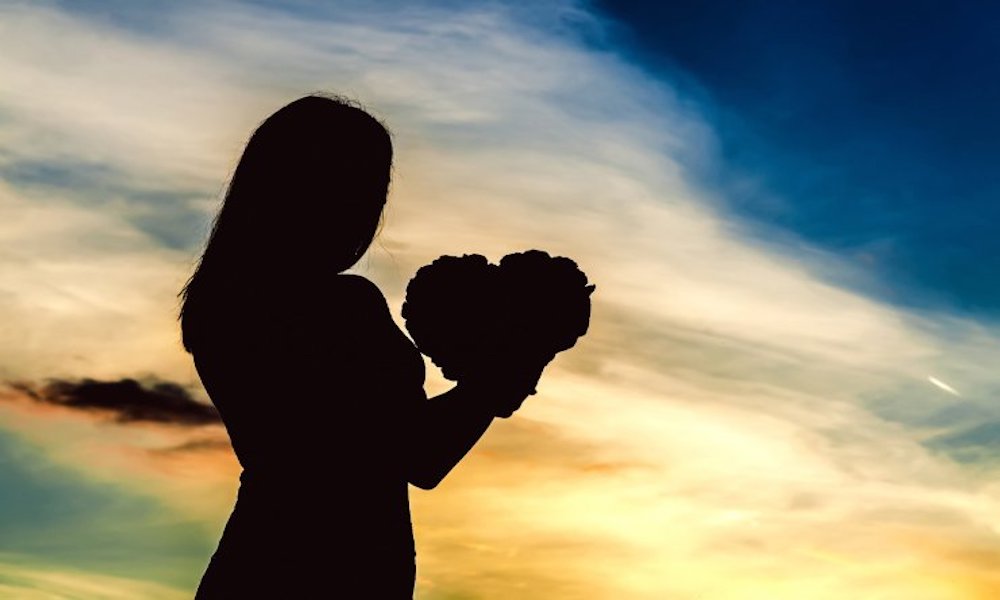Collectivistic cultures don’t know how to manage forming a single identity.—Dr. Shainna
For many, love means couples buying each other gifts, going out to expensive dinners, and making sure all of it is captured on Instagram for single people to see and spiral into self-loathing because no one “loves” them.
Sounds about right?
I’m Indo-Guyanese. I didn’t grow up in a very affectionate household, which is something I think a lot of us can relate to. For instance, I believe my parents acknowledged Valentine’s Day after we moved to the U.S. because it was a thing in school to share Valentine’s Day cards with everyone in your class. My mother always bought chocolate for me and my sisters. My father, after we were old enough to form the opinion that this is the holiday where husbands are supposed to give their wives presents and so we prompted him to, would buy my mother flowers and/or some other sort of small gift.
[Read Related: Self-Hatred to Self-Love: A Brown Girl’s Journey to Accepting Her Brown Skin]
The point is, I didn’t grow up thinking this was an incredibly significant holiday until high school and everyone somehow paired off specifically for this day and the halls were overcrowded with girls and their boyfriends’ gestures of “love” aka balloons. I, of course, never participated because I wasn’t allowed to date. I still didn’t completely understand it but I did think to myself, “great, yet another reason for me to not fit in.” My self-loathing was strong back then.
As I got older and social media took hold of everyone’s lives I started to see things targeted at making single people feel terrible about themselves. Everything from ads to the captions in people’s posts made it seem like if you weren’t booed up by Valentine’s Day there was definitely something wrong with you. Then I saw the single girl retaliation (Galentine’s Day). The movement didn’t feel uplifting though. It felt like it was an us-against-them scenario and that didn’t feel right to me either. [I had started on my own self-love path at this point.] Couples should be allowed to celebrate and flaunt their celebration if they choose to. There’s no reason to send them hate. Likewise, single people should be allowed to want to celebrate and flaunt with the people they feel closest to as well.
In general and especially within the Indo-Caribbean community, singledom is not celebrated. Questions on why you aren’t married, why you can’t find someone, and on and on are especially triggering during the month of February. But why should it be? Why can’t we, as a community, celebrate self-love? Conversely, marriages are often seen as a final commitment that cannot be altered, no matter how abusive the people within the marriage are. So again, why can’t we, as a community, celebrate self-love, not just amongst single people, but amongst all of our people?
[Read Related: How I Chose Self-Love in the Face of Racism and Oppression]
I sat with Dr. Shainna, an Indo-Caribbean mental health therapist, educator, and advocate, based in Florida, to discuss this topic. Dr. Shainna works as a therapist within a private practice, runs a blog via Psychology Today, and has published a workbook entitled The Self-Love Workbook. Her areas of research and practice have included identity and culture, and how the two affect our mental health.
She notes that in collectivist cultures self-love is seen as narcissistic because the community does not know how to manage individual members of the community forming a single identity.
To break this mindset she first asks, “How do you define self-love?” It’s important to remember that there is no single, all-encompassing definition of self-love because self-love is multifaceted and different for different people.
Delving further, to shape self-love within a collectivist paradigm, Dr. Shainna recommends that you ask yourself the following, “What if you invested in yourself so you can be a better [sibling, parent, spouse, etc.]?” “What if you treat yourself with the same respect as you would your [sibling, parent, spouse, etc.]?” It’s a matter of using terms members of the community understand, which is something she emphasizes in her workbook.
So if it’s Valentine’s Day or simply just another day of the single interrogation, remember to practice self-love, as defined by you. Also just as important, remember self-love isn’t a “single person thing,” it’s an everyone thing because we all need it in order to try to be better versions of ourselves.





